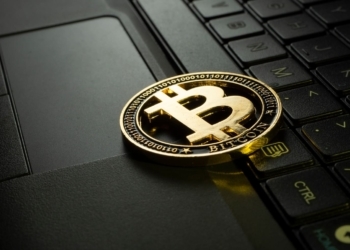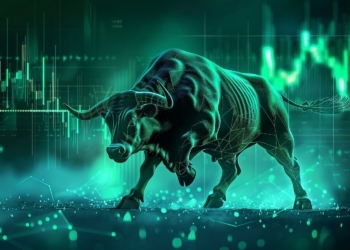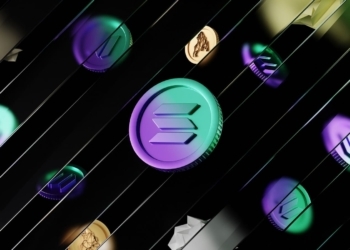DeFi is the acronym for Decentralized Finance. Decentralized finance is a novel vision in the banking and finance industry.
Decentralized finance is a peer-to-peer payment system built on the blockchain industry.
Through blockchain technology, DeFi permits “trust-less” finance and banking, bypassing middlemen like brokers and bankers.
Defi (Decentralized Finance) Benefits for Investor
The promise of decentralized Finance to investors is that they will be their banks. Decentralized finance provides investors the opportunity to carry out peer-to-peer lending activities and gets higher profits than those in the banking sector.
DeFi investors can transfer money to other users fast globally, and they can control their finance using their digital wallets. In addition, DeFi investors will not have to pay the traditional bank fees for transactions.
In this article, you will understand how Defi works, how it is disrupting the traditional banking system, and the risks associated with Defi.
How Defi (Decentralized Finance) Works

The aim of decentralized finance (Defi) is to use decentralized technology to give customers the benefits they will get from traditional banks and even more. These benefits include interest on deposits, loans, and payments.
In summary, the advent of decentralized finance is to change the HOW of banking systems and not the WHAT. It means that with Decentralized finance, you will have the same banking operations using new infrastructures.
To change the methods of traditional banking, decentralized finance uses smart contracts and blockchain technology. Blockchain is a distributed ledger that keeps transaction records of events with time stamps for everyone to see.
It is like running transaction records on particular blockchains with chronology. The data entered on the blockchain technology is immutable and permanent.
Related: Most Important Blockchains in 2022
Smart contracts are the basic foundations of Decentralized finance. Smart contracts are a set of codes that the blockchain technology executes when the players in the network obey some set of rules.
For Decentralized finance to work, the system must automate smart contract executions between the various players of the network.
“DeFi allows for smart contracts on the blockchain to take the place of trusted intermediaries — such as banks or brokerage firms — for peer-to-peer transactions,” says David Malka, CEO of YieldFarming, which helps investors earn income from cryptocurrency.
“These peer-to-peer transactions in DeFi can include everything from payments, investments, lending, and more.”
Today, cryptocurrency is becoming a real currency for transactions between people and buying products and services.
Related: KuCoin Goes deeply into Web3 with Newly Launched Decentralized Wallet with Amazing Features.
Major Benefits of Defi (Decentralized Finance)
Here are the benefits of decentralized finance for individuals;
- High level of security
- Low costs of transactions
- Wide range of services
- Higher interest on loans and deposits
Users can access these benefits using decentralized apps. There are decentralized app creators that are responsible for creating these apps.
“Decentralized applications, or dApps, allow people to transfer capital anywhere in the world (with fast settlement and at a low cost), peer-to-peer borrowing and lending, crypto exchange services, NFTs, and more services like crypto wallet and storage solutions,” Lutskevych says.
“DApps are preprogrammed by developers and depending on their purpose they can execute transactions on a specific blockchain network, settle agreements between buyer and seller, or move assets from a decentralized exchange to a decentralized lending platform,” he says.
The truth is that the only limit will be the app coding ability for executing transactions.
One benefits cryptocurrency investors using decentralized finance enjoy is income-generating ability. Decentralized finance allows users to stake their cryptocurrencies.
Crypto staking allows coin holders to support the cryptocurrency ecosystem and earn more by assisting to validate transactions. Crypto staking is part of farm yielding.
The interest rates for staking are usually more than the interest rates for traditional banking systems.
“Anyone can provide crypto assets as liquidity or loans through what’s called yield farming that pays the depositor with interest and fees,” says YieldFarming.com’s Malka.
“Yield farming is how you put your crypto to work in order to earn passive income.”
For service provision, some dApps need to have cryptocurrencies that inventors can convert to cash easily. The decentralized applications will offer income to investors.
This income is a yield, a profit given to investors for deciding to store their coins for some time. The effect is this; they will give income to investors that supply liquidity.
This income is like the interest traditional banks give people who deposit money in their banks.
How Defi Investors Generate Yields

There are different ways cryptocurrency investors can farm yield, and it depends on the type of decentralized applications that they choose.
Some decentralized apps can offer services like:
- Liquidity provision in a token exchange
- Using smart contracts to lend money for peer-to-peer borrowing
- Staking coins for coins that validate transactions with a proof of stake mechanism.
- Farming coins that people borrow.
These yield-generating methods will give investors income and profits passively.
Although investors will pay taxes for their profits as they will for their other outside blockchain sources of income.
“Even the lowest-risk yield farms can easily return interest rates several times those of savings accounts at banks,” Malka says.
“This is particularly important during bear markets — where the price of cryptocurrencies like Bitcoin or Ethereum is trending downwards.”
Defi (Decentralized Finance) Risks
The concept of Defi sounds like a new era for finance and the fintech industry. Even with all the hypes and positive speculations, Defi has some risks and drawbacks for investors that will love to go into it.
These risks are:
- Learning Defi can get complex, it is not as easy as walking into your traditional banking institution and carrying out a transaction. “DeFi can be a challenge for beginners to navigate because of the massive amount of DeFi applications and investment opportunities out there,” Malka says. “Even the onboarding process can be confusing for some people because you need to move money from an exchange like Coinbase into a noncustodial wallet, such as through MetaMask, to begin accessing the world of DeFi.”
- The desire to earn high passive income through farm yielding for new investors has led to a lot of scams. Scammers entice unsuspecting new investors with too good to be true high yield, then rip them off their money.
- Apart from scams, investors can lose their coins and tokens to theft. People can hack into investors’ decentralized applications and steal from them, especially when the decentralized apps are vulnerable. “In these exploits, funds can be lost, and then it comes down to the core team behind the DeFi project to decide how, if at all, to compensate the participants,” says CEX.IO’s Lutskevych.
- Sometimes, making transactions over some decentralized finance networks can attract high amounts of ‘gas fee’. Gas fees are monies you pay as fees for sending coins to another user on a network. Networks like the Ethereum networks can cost so much, sometimes even more than the value of the coins you want to send. “It is not uncommon that a ‘round trip’ can cost well over $200 in gas fees,” Lutskevych says.
- The cryptocurrency market is very volatile, so the volatility may affect your yield. You can lose a one-year yield in one day because of the drop in the price of cryptocurrencies.
- Decentralized finance projects can die off as the team members leave the project to chase other projects. “If one day, they decide to quit, the logic of the protocol will execute as is, but no further upgrades will take place,” Lutskevych says.
Related: The Risks Of Cryptocurrency Trading
If you to begin a journey into the world of Defi, you will need to get past the general knowledge of cryptocurrency. As a beginner Defi investor, you should start with a counterparty you can rely on.
There are risks as much as profits in Defi, do not allow the profits to blind you from seeing other risks in the Defi world. Defi is a very good ecosystem, but you should begin after you have fully understood the functionality of this high-profit ecosystem.












Discussion about this post